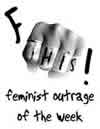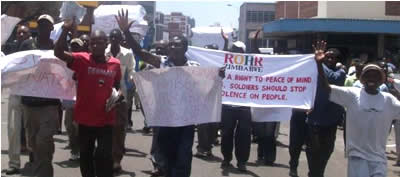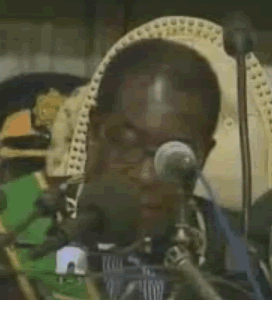When the AU was formed in 2002 as a successor of the OAU, one of its main objectives was to achieve peace and security in Africa and to promote democratic institutions, good governance and human rights. It was also going to promote and defend common African positions on issues of interest to the continent and its peoples.
The Zimbabwe crisis is just the latest indication of why we must place no confidence in the ability of either the AU or its young brother SADC to handle regional problems as well as sail this continent onto the path of development. Their inaction on Zimbabwe is shocking and appalling to say the least and it smacks of both lack of will and incompetence.
Mugabe derives his spunk from the indifference and silent support of his peers. Ejecting him from the AU and verbally condemning his actions would probably have made some difference in his behavior or at least lessened his confidence. But only a few leaders like the late Zambian president Levy Mwanawasa, Botswana’s new President, Seretse Khama Ian Khama and lately, Kenyan Prime Minister, Raila Odinga have dared to be vocal about Mugabe’s self-imposed government and have even called for his and Zimbabwe’s suspension from the AU. The rest of the whiteheads especially in SADC have been inexplicably maintaining what Odinga calls a “diabolical conspiracy of silence bound by personal misdeeds and complicity in refusing to condemn their neighbors,” especially Mugabe. The same culture of impunity is what nurtured the excesses of the continent’s infamous dictators like Mobutu Sese Seko of the DRC and Uganda’s heartless Idi Amin under the banner of predecessor OAU’s founding principle of respect for national sovereignty.
In trying to understand why the AU and the SADC are toothless bulldogs barking endlessly from the periphery, Odinga postulates that African leaders are an old dictators’ club that have an inherent fear of criticizing each other. This is because, as Mugabe so rightly put it at the Sharm el Shaik, Egypt AU summit, they too have skeletons rattling in their closets.
It is thus not surprising that the AU has failed to put the people of Zimbabwe first and to stand up for democracy. In an ironic joint statement, the AU/SADC pledged “As guarantors of the implementation of the agreement, both AU and SADC will spare no effort in supporting its full and effective implementation.” What have these two organs done in the face of Mugabe’s latest unilateral declaration of cabinet? Again, as was the case in Kenya, the party that should have rightly taken over power is being forced by regional pressure to concede to an increasingly unworkable compromise deal and endless mediation processes by an inefficient go-between who insists on a concept of quiet diplomacy that only he understands. Recently, in response to a legal application filed against it by the Zimbabwe Exiles Forum two months ago, SADC has for the first time acknowledged that Mugabe should not be recognized as a legitimate head of state. But the organization rejected the demand to refuse to allow Mugabe and his government to participate in future SADC activities. Its excuse was that former South African President Thabo Mbeki, the SADC appointed mediator, was able to facilitate a power sharing deal to end Zimbabwe’s political crisis.
What ‘African’ common position are the AU/SADC defending when they fail to condemn errant dictators who hold whole starving nations to ransom in order to protect selfish interests?
In its thirty-nine year history, the OAU could only be judged as an abysmal failure. It failed to challenge any major dictator on the continent and stood idle while civil wars, ethnic conflicts, poverty and disease ravaged ordinary Africans. Its only success was in preserving the notion of sovereign borders in Africa. Wole Soyinka once described it as a “collaborative club of perpetual self-preservation.” The AU is the new OAU under a different name: its membership is the same and there are no new institutions to suggest that it will be any more effective or less selfish than its predecessor.
As a pan-African organization, the AU must be willing to stand up to African dictators and military rulers that have been the real causes of bloodshed and poverty on the continent. So far the AU has failed in this mission: Mugabe is still a revered charter member of the AU and it has failed to recognize Morgan Tsvangirai as the country’s rightful elected leader. If we start to question the complacency of the AU, we start to ask, why was it tolerable that a tyrant lost an election, imprisoned, killed and molested those who dared oppose him, then proceeded to reelect himself to the presidium, and no action was taken?
The AU has failed the people of Zimbabwe by its unwillingness to deal effectively with the political crisis that was single-handedly constructed by one dictator. For months they have insisted on mediation and dialogue when decisive action has been called for. The AU has failed too often or remained inert when it should have acted, and its internal procedures are often agonizingly inadequate for the challenges it faces in problem countries. For far too long, and with immensely destructive consequences, the AU has downplayed the dimensions of crises in various African countries and the urgency of large-scale humanitarian intervention. This is particularly true of the situation in Africa’s largest country, Sudan with the longstanding and ongoing conflict in Darfur that stretches as far back as 2003. Look also how dictators recently bulldozed their way into leadership in Kenya.
The AU has only been good at issuing statements. The AU’s fine words at the moment are little consolation to Zimbabwe’s hungry, oppressed people. Once more, like its predecessor, the AU is set to fail the people of Africa.












